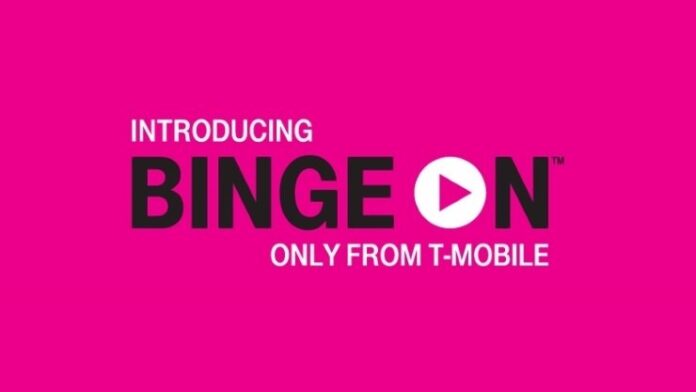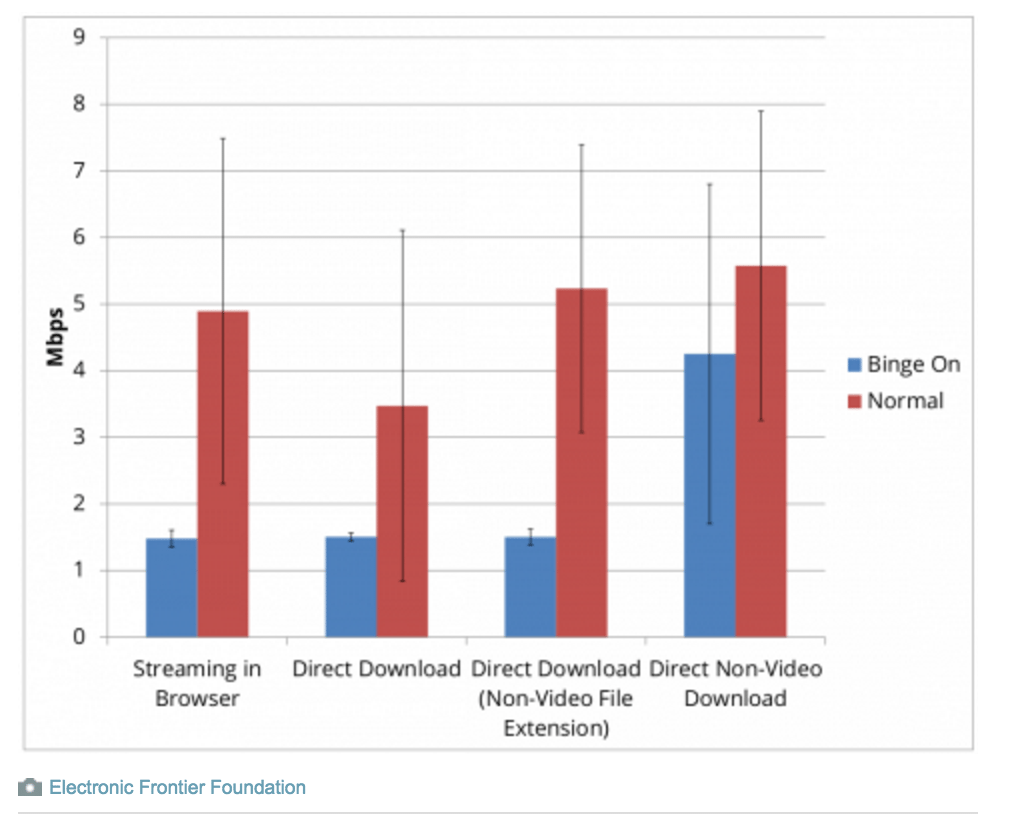FCC to investigate whether findings break throttling rules
T-Mobile US’ controversial data neutral streaming video service, Binge On is under fire for data throttling according to a new report. Tests run by the Electronic Frontier Foundation found that when customers used Binge On, the program topped out at just 1.5 Mbps for all HTML5 video streams and direct downloads.
The carrier has never denied Binge On reduces the quality of the streaming video when it is being used, but the issue here is tests found that when the service was enabled, it downgraded all video regardless of whether it was data exempt or not. This could fall under the umbrella of data “throttling.”
Tests showed when Binge On was enabled, all video streams and downloads degraded to 1.5 Mbps. When it was disabled, it topped out at nearly 5 Mbps.
The Federal Communications Commission has requested a meeting with T-Mobile to talk about potential conflicts arising from the Binge On service that go against “the Commission’s goal of maintaining a free and open Internet.”
T-Mobile argues customers don’t have to use have to use the service, which is true. But some are still concerned with the lack of details provided about how the company is throttling the video. That is what led to the EFF tests.
“Each test was done over an HTTP connection, which allowed T-Mobile’s network to observe the content of the connection and perform ‘optimization’, and over an HTTPS connection, which prevented T-Mobile’s network from observing the content of the connection, thus representing behavior without any sort of Binge-On-related optimization (“Normal”),” the findings said.
The other major finding of the report was “that T-Mobile is throttling video downloads even when the filename and HTTP headers (specifically the Content-Type) indicate the file is not a video file.”
The EFF said they reached out to T-Mobile to better understand the process. “We asked T-Mobile if this means they are looking deeper than TCP and HTTP headers, and identifying video streams by inspecting the content of their customers’ communications, and they told us that they have solutions to detect video-specific protocols/patterns that do not involve the examination of actual content,” the report added.
T-Mobile calls the practice “optimization” and dispute that it is throttling. The company told the EFF it is not doing any optimization other than reducing the bandwidth of the video streams.
The EFF says the company should be more transparent about a customer’s ability to opt out of the service.


